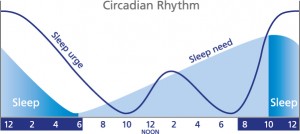 As Giro d’Itlalia fever still courses through our veins after a fantastic weekend in Northern Ireland, we’ve all been in the pink watching the cyclists power-house through the cities, towns and villages in our wee country.
As Giro d’Itlalia fever still courses through our veins after a fantastic weekend in Northern Ireland, we’ve all been in the pink watching the cyclists power-house through the cities, towns and villages in our wee country.
A double celebration for us at Dalzell’s as not only did the teams pass by our showrooms in Markethill but we’ve gone all out to embrace Giro fever by joining the ‘Cycle To Work Scheme‘ for our employees.
Cycling, like any form of exercise, is one of the most effective changes we can make to impact our health positively ; but did you know that even gentle exercise can play an important role in our ability to get a good night’s sleep?
How Much Sleep Do we Need?
According to a major report published by The Sleep Council: a third of the population (33%) now get by on five to six hours sleep a night compared to 27% in 2010. And the majority of people (70%) sleep for seven hours or less.
Current NHS guidelines indicate that we don’t necessarily need eight hours sleep, but experts believe that most adults require between six and nine hours in order to feel refreshed and to function well both mentally and physically.
Sleep Cycles
Somewhat similar to the Giro, sleep patterns are defined in stages. Each stage of sleep plays a different part in preparing us for the day ahead.
There are two main types of sleep:
- Non-REM (NREM) sleep consists of four stages of sleep, each deeper than the last.
- REM (Rapid Eye Movement) sleep is when we do our most active dreaming.
Stage 1 – is when we start to feel drowsy and our eyes move slowly under the eyelids, muscle activity slows down, and we wake easily.
Stage 2 – is the first stage of deeper sleep. Our eye movement stops, heart rate slows, and our body temperature decreases.
Stage 3 & 4 – is the deepest stage of sleep, our brain waves are extremely slow and it’s harder to wake; you may feel groggy and disoriented for a while.
REM sleep – or dream sleep is when we dream.
People will go through each of the stages of sleep from one to four, then back down through stages three and two, before entering dream sleep.
Top Exercise Tips To Get a Good Night’s Sleep
To ensure you experience good sleep it’s essential to follow good lifestyle habits and to eliminate the factors that are causing you disturbed sleep. For example, exercise can help you enjoy better quality sleep and lower body temperature which also helps you get over to sleep.
- When exercising try not to overdo it as wearing yourself out physically is not particularly likely to induce sleepiness.
- It’s not necessarily true that exercising before bedtime disturbs sleep. Remember, it’s better to exercise in the evening than not at all.
- Conversely, exercising in the morning is an excellent way to get the body awake. Whether it’s going for a cycle or doing some other form of exercise, this stimulates the body, which perks us up.
What To Do Next?
At Armagh Beds.com we want to make sure you get a great night’s sleep. As a Sleep Council Retailer our expert staff are only too happy to advise on what bed and mattress is best for you. You can place your order and gain expert advice from our experienced team over the phone on 028 3755 1260 or even by Email. Or why not Visit in-store at Dalzell’s, located in Markethill, just off the A28 between Armagh and Newry and less than 45 minutes drive from Lisburn. No time to visit, no problem! With over 500 beds and mattresses in stock and Free Delivery and Free Recycling across Northern Ireland and Counties Louth, Monaghan and Dublin, we provide a complete service. We also offer competitive rates for delivery throughout the rest of Ireland. We can provide additional discounts for Multibuy and our Price Promise means your new new divan bed represents excellent value for money. Call, Email or Visit Us In-store.






